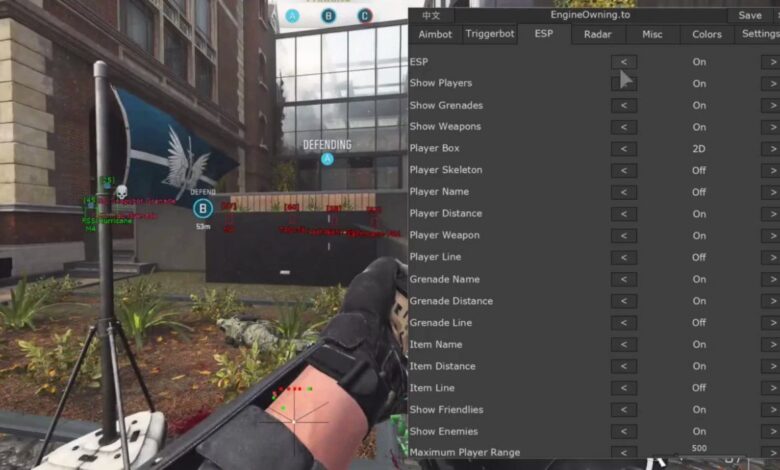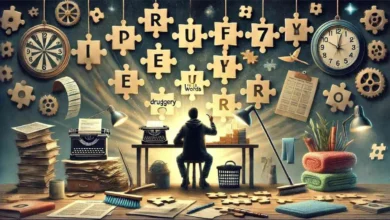EngineOwning Explained: The Controversy of Cheats in Multiplayer Games

In the gaming world, few terms are as contentious as EngineOwning. This phrase refers to a specific type of software that allows players to gain unfair advantages in various video games. EngineOwning offers a variety of cheats, hacks, and modifications, which can alter the behavior of games in ways that are not intended by the developers. These hacks often range from aimbots to wallhacks and everything in between, giving users an upper hand in competitive games. But while EngineOwning may appeal to some players looking for an edge, it raises serious concerns about fairness, security, and the integrity of gaming communities.
Understanding what EngineOwning is, how it works, and the potential consequences of using it is crucial for gamers, developers, and anyone involved in the gaming ecosystem. In this article, we will delve deeper into the world of EngineOwning, exploring its features, the controversies surrounding it, and the ethical and legal implications that arise from its use.
What is EngineOwning?
EngineOwning is a type of cheat software that enables players to manipulate video game mechanics for personal gain. The software is primarily designed for multiplayer games, where it provides cheats such as aimbots, wallhacks, radar hacks, and other features that give players an unfair advantage over their opponents. The cheats are integrated into the game’s engine, hence the name “EngineOwning.” These tools are often distributed as paid services, allowing users to download and install the software on their gaming systems.
The software is typically undetectable by the game’s anti-cheat systems, which is why it has gained popularity among players who wish to exploit flaws in these detection mechanisms. Some of the most common cheats offered by EngineOwning include:
- Aimbots: Automatically aim at opponents, making it easier to land headshots and win gunfights.
- Wallhacks: Allow players to see through walls, giving them the ability to spot enemies before they’re visible to others.
- Radar Hacks: Display the positions of all players on the map, eliminating the need for traditional scouting or map awareness.
- Recoil Control: Automatically controls the recoil of weapons, making it easier to hit targets without losing accuracy.
These features have made EngineOwning a popular choice for gamers looking to dominate online multiplayer games. However, its use is highly controversial and can lead to serious consequences.
The Impact of EngineOwning on the Gaming Community
While EngineOwning and similar cheat software may offer advantages to players, they come with significant downsides that affect the entire gaming community. One of the primary issues with cheats like EngineOwning is the destruction of fairness in competitive gameplay. When players use cheat software, it undermines the skills-based competition that is central to most multiplayer games.
Decreased Player Trust and Experience
In games that involve matchmaking, the use of cheats creates an environment where players are unable to trust that their opponents are playing fairly. This leads to frustration, as legitimate players may feel helpless when facing opponents who are exploiting cheats. As a result, players may become disillusioned with the game, potentially quitting or seeking out other games where they believe the competitive integrity is maintained.
Developer Backlash and Anti-Cheat Measures
Game developers are aware of the existence of cheat software like EngineOwning and have made significant efforts to prevent its use. Many gaming companies have integrated anti-cheat systems into their games, such as BattleEye or EasyAntiCheat, to detect and ban players using cheat programs. However, cheat developers are constantly evolving their software to avoid detection, creating a never-ending arms race between hackers and developers.
The use of EngineOwning has led to an increase in the demand for better anti-cheat measures. However, these systems often come with their own issues, such as false positives, which can result in innocent players being banned, or performance problems that can affect the overall game experience.
The Legal and Ethical Implications of EngineOwning
The use of cheat software like EngineOwning raises significant legal and ethical concerns. From a legal standpoint, the use of cheat programs in games can violate the terms of service of most game developers. This can lead to permanent bans for players caught using cheats, as well as potential legal action in some cases. Many game developers have filed lawsuits against cheat providers, arguing that their actions damage the integrity of their games and harm the overall player experience.
Ethically, the use of cheat software in multiplayer games is highly controversial. Many argue that cheating undermines the spirit of fair competition and sportsmanship. It also has a detrimental effect on the wider gaming community, as it encourages other players to seek out and use cheats themselves, further exacerbating the problem.
From a broader perspective, cheating can damage the reputation of games and developers. A game with a high prevalence of cheats can quickly become associated with unfair play, discouraging new players from joining the community. This can lead to a decline in the player base and revenue for game developers
Consequences of Using EngineOwning
While the temptation to gain an advantage through cheat software may seem appealing to some, the consequences of using EngineOwning can be severe. Here are some of the potential outcomes for players caught using cheats:
Bans and Account Termination
One of the most immediate and severe consequences of using cheat software is the risk of being banned from the game. Most game developers have strict policies regarding cheating, and players caught using EngineOwning or similar software can face permanent bans. In some cases, players may have their accounts suspended, temporarily or permanently, depending on the severity of the violation.
Legal Action
In extreme cases, developers may choose to pursue legal action against individuals or organizations that distribute cheat software. Lawsuits can result in hefty fines or legal penalties, especially if the cheat provider is found to be causing significant damage to a game’s ecosystem. Cheat developers who profit from selling cheat software could face legal action for breaching intellectual property laws or engaging in fraudulent activities.
Negative Reputation
For the individual player, being caught using cheat software can result in a damaged reputation within the gaming community. Players who are known to cheat may find it difficult to regain the trust of other players, leading to social exclusion or harassment. Many players may also choose to report suspected cheaters, further isolating those who engage in unfair practices.
The Future of EngineOwning and Cheat Detection
The battle between cheat developers and game companies is ongoing, and it’s likely that we’ll continue to see new versions of EngineOwning and similar cheat software emerge. However, as technology advances, so too do the anti-cheat systems developed by game companies. Innovations in machine learning, artificial intelligence, and data analysis are being used to create more effective cheat detection systems, which could make it harder for cheats like EngineOwning to remain undetected.
Ultimately, the future of EngineOwning will depend on the actions of both game developers and the wider gaming community. Developers must continue to improve their anti-cheat measures, while players must remain vigilant and report cheating when they encounter it. By working together, it’s possible to maintain the integrity of competitive gaming and ensure that fairness is upheld for all players.
Conclusion
EngineOwning represents a controversial and complex issue within the gaming world. While it may provide short-term benefits for players seeking an advantage, it ultimately harms the gaming community as a whole. The negative impacts on fairness, player experience, and the ethical considerations surrounding cheating are significant. For players, it’s essential to understand the consequences of using cheat software and the importance of playing fairly. For developers, continuing to evolve anti-cheat systems is crucial to protecting the integrity of their games.




